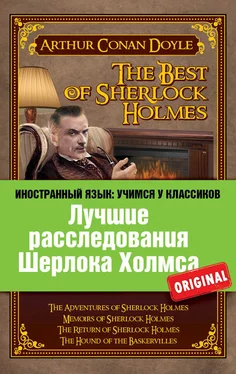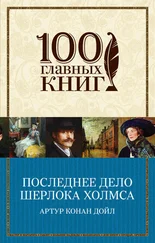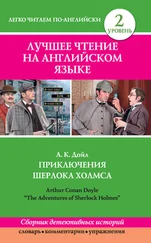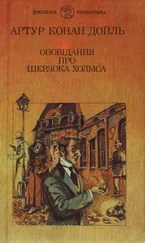half-and-half – a cocktail, consists of half ale half bitter beer
Inner Temple – The Honourable Society of the Inner Temple is one of four London professional associations for barristers providing education and training for its members. The headquarters of the Society are situated near the Temple Church. The area surrounding the Temple church is known as the Temple.
Hansom cab – a closed horse-drawn two-wheeled carriage with the driver’s seat above and behind the passengers. Hansom cab had a low centre of gravity to provide safer cornering. It was named after Joseph Hansom who patented it in 1834.
license – marriage license, a document issued by ecclesiastical or civil authorities permitting a couple to get married
John Hare(1844–1921) – a famous stage actor
Ulster – a long loose overcoat made of heavy fabric (tweed, herringbones etc), its name refers to Ulster where it was originally produced. In Victorian Britain it was an informal daytime overcoat.
Charing Cross – Charring Cross railway station, a railway terminus opened in 1864 in the City of Westminster. Now it is one of the busiest railway terminals in London.
née– born ( French ). The word is put before maiden name mentioned after the surname of a married woman.
shepherd’s check trousers – trousers made of fabric (usually wool) woven in small black-and-white checks
Albert chain – a kind of watch chain named after Prince Albert, Queen Victoria’s husband
Freemason(or Mason) – a member of the secret fraternal order of Free and Accepted Masons. Originated in the Middle Ages from the guilds of stonemasons that built cathedrals and castles, Freemasonry is now the largest worldwide “secret” society.
Omne ignotum pro magnifico – Everything unknown is taken for magnificent. ( Latin )
The Morning Chronicle – a daily newspaper famous for having among the staff Charles Dickens and Henry Mayhew.
foolscap (folio) – a traditional large size of paper (8½ in x 13½ in)
de Sarasate y Navascué s, Pablo Martín Melitón(1844–1908) – a famous Spanish violinist and composer who toured a lot and performed at the best stages
St. James’s Hall – a concert hall opened in 1858; till the 1900s it was the principal concert hall of London.
Aldersgate – one of the 25 wards of the City of London (about 3 miles from Baker Street)
Scotland-yard – a household name of the Metropolitan Police headquarters. When founded in 1829, the Metropolitan Police occupied the building 4 Whitehall Place which backed onto Great Scotland Yard Street.
napoleons – an informal name of French golden coins. In different periods of time their value varied from from 5 to 100 francs.
partie carré e — foursome ( French )
L’homme c’est rien – l’œuvre c’est tout – The man is nothing, the work is everything! ( French )
as Gustave Flaubert wrote to Georges Sand – it is really a quotation from the letter of famous author Gustave Flaubert (1821–1880) to another famous author, Georges Sand (1804–1876, real name Aurore Dupin), though the original phrase was “L’homme n’est rien, l’oeuvre – tout.”
affaire de coeur – love affair ( French )
King’s Cross – an area of central London. The name of the district is due to a monument to George IV erected there in the 1830s. The monument was demolished in 1845, but the area still keeps its name. In 1852 there was opened King’s Cross railway station.
four-wheeler(aka the growler or the Clarence) – a closed four-wheeled carriage that seated four passengers. It was a standard cab in Victorian London.
Harris tweed – a type of tweed cloth woven from pure virgin wool on the Outer Hebrides of Scotland: Lewis, Harris, Uist and Barra. Harris tweed is handwoven and produced only of the wool dyed and spun on the Islands.
an action for breach of promise – in Victorian Britain it meant court proceedings when a man who had promised to marry changed his mind afterwards
Paddington= Paddington Railway station (aka London Paddington); it was opened in 1838. It served the eastern terminus for the Great Western Railway (from Bristol to London). In 1863 the first underground passenger-carrying railway (the Metropolitan Railway) was opened between Paddington and Farrington.
Herefordshireis a county in Western England
(The Courts of) Assizeswere courts held by visiting judges at the principal towns of each county not to make the litigators travel to London. The Assizes dealt mainly with serious crime cases transferred by local county courts.
coroner’s jury — coroner is an official whose duty is to discover the cause of individual’s death in criminal or possibly criminal cases. In the 19 thcentury British coroners conducted inquests with the help of a jury.
The River Severnis the longest river in the UK (about 354 km). It flows from Plynlimon, Wales through Shropshire, Worcestershire, Gloucestershire, Monmouthshire, and discharges into the Bristol Channel.
Bermuda Dockyard —Her/His Majesty’s Dockyard on Ireland Island, Bermuda was established after the defeat of the UK in the American War of Independence. It served as an important strategic base of Royal Navy for about 150 years. In the 19 thcentury the Dockyard was employing about 1000 Bermudians as well as using the labour of convicted criminals from the UK.
George Meredith(1828–1909) was an English Victorian poet and novelist.
Clark Russell’s – William Clark Russell (1844–1911) was a popular Anglo-American nautical and horror novels author.
Jackson’s army, and afterwards under Hood – Henry Rootes Jackson and John Bell Hood were Confederate generals during the American Civil War.
Lee – Robert Edward Lee commanded the Confederate Army. His surrender to Union General Ulysses S. Grant at Appomattox Court House on April 9, 1865 ended the American Civil War.
Читать дальше
Конец ознакомительного отрывка
Купить книгу











